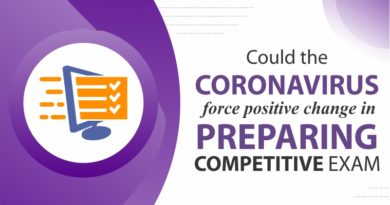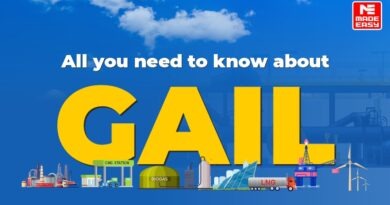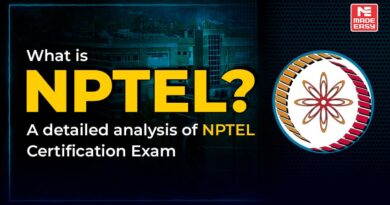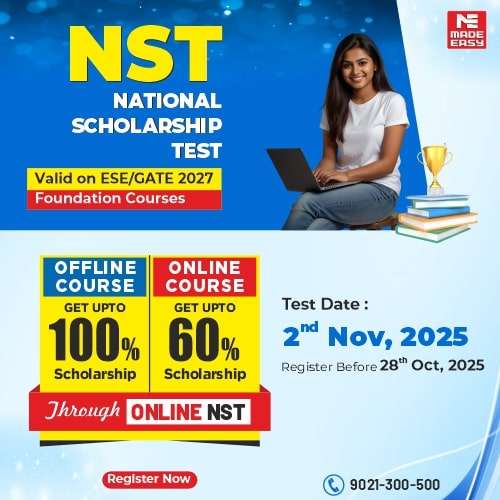Indian Space Research Organisation (ISRO) – Key Facts & Info
The organisation that has made India’s star rise in space is none other than the Indian Space Research Organisation (ISRO). This organisation is one of the best space organisations in the world today. ISRO has made remarkable strides in space technology and exploration, and positioned India as a global player in space technology. From launching satellites to successful lunar missions, ISRO has continuously expanded its horizons. With upcoming missions like Gaganyaan and Aditya-L1, it is poised to achieve even greater success in the coming years. Anyway, this is general information about India’s space organisation, but today we will figure out the key facts related to ISRO: how it was formed, how it works, how to get a job in ISRO, life in ISRO, and the salary of ISRO scientist.
What is ISRO?
Indian Space Research Organisation (ISRO) is the country’s space agency. It is involved in science, engineering, and technology to harvest the benefits of outer space for India and mankind. ISRO is a major constituent of the Department of Space (DOS), Government of India. The department executes the Indian Space Programme primarily through various centres or units within ISRO. ISRO was previously known as the Indian National Committee for Space Research (INCOSPAR), set up by the Government of India in 1962, as Dr. Vikram A. Sarabhai envisioned. ISRO was formed on August 15, 1969, and superseded INCOSPAR with an expanded role to exercise space technology. DOS was set up, and ISRO was brought under DOS in 1972. ISRO’s headquarters are in Bengaluru.
How To Get a Job In ISRO?
ISRO has shown tremendous growth in its research and missions and is deemed as one of the most prestigious organizations in recent times. Right from Chandrayan to MOM, it has brought India to the map of Aerospace around the globe. Joining an organization like ISRO presents you with an opportunity to learn from the best minds in the country and contribute to the growth and development of the nation.
The job offers you a perfect work-life balance owing to its timing of 8 hours along with a decent salary and immense perks. It also allows you to undertake your post-graduation from the best institutes in the country, like IITs and IISC. So, to all the students who have an interest in aerospace and are willing to join ISRO, So this article will help clear all your doubts.
For a better understanding of the recruitment process in ISRO this article will be divided into 5 parts:
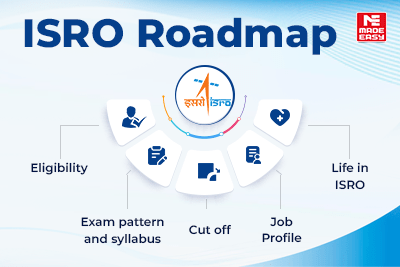
Eligibility
It is the basic qualification that it expects the candidates appearing for the entrance exam are expected to have. According to official sites, Exam Eligibility criteria are of various types: Age, Educational Qualification, and others
Age Requirement:
- The requirement for this exam concerning age is that the maximum age limit for all the candidates is 35 years, i.e. candidates less than 35 years of age can apply for the post of Scientist in this space organisation.
- The maximum age limit for all the SC/ST candidates is 40 years
- The maximum age limit for all the OBC candidates is 38 years
- For the SC/ST and OBC, the age relaxation is only valid against posts reserved for these categories
- Special relaxation is given to Ex-Servicemen and Persons with Disabilities (PwD) as per the Government of India orders.
Education Qualification:
It requires, for the post of scientist, graduates in the field of Civil, Electrical, Architecture, Mechanical, Electronics, Computer Science and Refrigeration and Air Conditioning streams. Accordingly, the required Educational Qualification for the candidates is:
- All the candidates who are willing to apply must have qualified B.E./B.Tech or equivalent qualifying degree.
- For all the candidates who have done their diploma followed by B.E/B.Tech (Lateral Entry) candidates are also eligible, provided they have passed their degree in first class with an aggregate minimum of 65% marks or CGPA 6.84 on a scale of 10.
- Associate Member of the Institution of Engineers (AMIE) candidates can also apply here but special conditions are specified for these candidates, so AMIE candidates wishing to apply must check if they are eligible before applying.
- All the candidates who have passed M.E/M.Tech with B.Tech is eligible to apply, provided their B.Tech marks meet the eligibility specified above.
- All the candidates who have studied the integrated courses of B.E/B.Tech and M.E/M.Tech is also eligible for the this examination.
- Candidates with part-time B.E./B.Tech degrees are also eligible.
- Candidates who have done their B.E or B.Tech through a correspondence course is not eligible.
- The qualification for an ISRO scientist mentioned and the benchmark set is only the MINIMUM requirement, and fulfilling the same does not automatically make candidates eligible for the Written Test.
- Candidates who apply for the post of architect will have to produce the Registration Certificate for having registered with the Council of Architecture, at the time of the Interview, failing which he/she will not be allowed for an interview
These are the disciplines that are broadly allowed for ISRO recruitment:
- Electronics: Applied Electronics, Electrical Electronics Communication, Electronics & Communication, Electronics & Power, Electronics & Telecommunication, Industrial Electronics, Power Electronics, Telecommunication, Instrumentation Technology, Instrumentation & Control, Electronics & Instrumentation, Avionics
- Mechanical: Industrial engineering, Industrial management, Industrial production, Mechanical Engineering, Manufacturing Sciences/Engineering, Metallurgy, Production Engineering, Production Management, Aeronautical Engineering, Telecommunication, Mechatronics
- Computer science: Information Science, Information Technology
- Electrical: Electrical and Electronics
Others:
- Candidates must be a citizen of India only.
- To apply here, all the candidates are required to register first at the National Career Services (NCS) portal.
Application form
- All the candidates applying for the post released by ISRO are required to first register in the National Career Services (NCS) portal, subsequent to which they can apply.
- After registration in NCS ports, the candidates must visit the ISRO website at www.isro.gov.in to register their applications online.
- During the registration, scanned copies of the latest passport-sized Photograph and Signature of the candidates in the prescribed file size is required to be uploaded in the application.
- After the completion of the application from the candidates will be provided an online Registration Number, which should be carefully preserved for future reference.
- A NOC (no objection certificate) is also required from the employer concerned, by those already in employment under Central/State Government, Public Sector Undertakings, or Autonomous Bodies.
ISRO Entrance Exam Pattern and Syllabus
Considered as one of the most prestigious organizations, ISRO’s Entrance Exam is conducted to test the technical understanding and application of the concepts of candidates in their respective streams. Therefore, the selection procedure for this exam comes in three phases:
- 1st phase: After the filling of the application form, the first screening process for the candidates is done. In this, the candidates are shortlisted for their written exam based on their academic performance in college and their biodata.
- 2nd phase: In the second phase, all the candidates shortlisted in the screening process are called for the written examination. The written examination has limited cities in which the exam is conducted. The call letter for the written examination is sent by email. The written test is conducted in the following twelve venues viz., Ahmedabad, Bengaluru, Bhopal, Chandigarh, Chennai, Guwahati, Hyderabad, Kolkata, Lucknow, Mumbai, New Delhi, and Thiruvananthapuram.
ISRO Entrance Exam Pattern:
- The written exam is an objective type exam and is set in English.
- In the question paper, 80 objective-type questions are asked.
- The total time allotted is 90 minutes.
- The written test is only a screening process, and the marks of the same are not considered while preparing the final list of selection.
- All those candidates who qualify for the written exam are called for the interview
3rd Phase: The last and final round of the selection is the interview round. All the candidates who qualify for the written exam are called for the interview round. The final selection of the candidate is solely dependent on this phase, the interview round.
Also, the candidates called for interview are required to produce all relevant original documents in proof of the details furnished in their applications submitted online, at the time of the interview. Failing to do so may the candidate’s interview being canceled.
ISRO Syllabus
ISRO recruitment Syllabus for the Phase 2 entrance exam for the four main branches is mentioned below. For the sub-branches the syllabus will depend on the branch being applied from.
| S No. | Branch | |
|---|---|---|
| 1. | Civil Engineer | Building Materials, Surveying, Transportation Engineering, Soil Mechanics, Hydraulics, Irrigation Engineering, Estimating, Costing, and Valuation, Environmental Engineering, Structural Engineering, Theory of Structures, RCC Design, Steel Design, Concrete Technology |
| 2. | Electrical Engineering |
Basic concepts, Circuit law, AC Fundamentals, Basic Electronics, Measurement and Measuring Instruments, Electrical Machines, Fractional Kilowatt Motors, Single phase induction Motors, Synchronous Machines, Magnetic Circuit, Generation, Transmission and Distribution, Estimation and Costing, Utilization and Electrical Energy. |
| 3. | Refrigeration & Air Conditioning | Applied Mathematics for Thermal Engineers, Advanced Thermodynamics, Advanced Heat Transfer, Refrigeration Systems Design, Air Conditioning Systems Design, Computer Simulation of Refrigeration & Air Conditioning Systems, Instrumentation for Thermal Systems, Design of Condensers Evaporators and Cooling Towers |
| 4. | Architecture | The syllabus of the written test will be based on the curriculum taught in B.Arch |
D. Job Profile:
Unlike the other government jobs, the ISRO scientist has an interesting job profile for aspirants depending on their stream. The Job profile for scientist varies depending on the post applied for and the stream.
| S. No. | Post | Job profile |
|---|---|---|
| 1 | Mechanical | Design and analysis of satellite structures and related Mechanical components, • Design and analysis of spacecraft mechanisms and study of kinematics • Structural dynamics (theory & experimental) including smart structures, Advanced Composites • Reliability and Quality Assurance of mechanical designs and systems |
| 2 | Electronics | Digital Signal Processing Design of microprocessor based onboard systems High speed data compression Design, development and testing of digital circuits FPGA& ASIC development and testing Analog & Mixed Signal SIC Development & Testing |
| 3 | Civil | Construction and maintenance of its infrastructure. remote sensing , GIS and mapping of urban planning, water shed management, digitization of land records, catchment areas, land use etc. |
| 4 | Mechatronics | Development of Control algorithms & Computer Simulation Navigation Guidance and Control for various missions Robotics related developments |
| 5 | Instrumentation | Installation, Commissioning, Operation & Maintenance of Environmental Test Systems for spacecraft & sub system testing. Operation & Maintenance high speed specialized data acquisition & control systems |
| 6 | Electrical and Electronics |
Fabrication and testing avionics systems Development of Test & Evaluation systems for spacecraft hardware Installation, Commissioning, Operation & Maintenance of Environmental Test Systems for spacecraft & sub-system testing |
| 7 | Industrial | Resource Management, Financial & Personnel Management functions, Systems Engineering & Project Management. |
| 8 | Opto Electronics |
Design, development of electro-optical devices and their characterization. Optoelectronic devices, MOEMS and infrared detectors. Development of THz detectors for space applications. MOEMS sensors for micro-satellites. Development of un-cooled IR detectors for passive and active detection systems |
| 9 | Metallurgy |
Process development & qualification of space-qualified materials for spacecraft Optical thin films process and material development, design and development of multilayer optical coatings |
Here are some of the most commonly asked questions that ISRO aspirants must know about:
How to become an ISRO scientist?
If you want to become an ISRO scientist, then you must have researched to find out the expert-recommended ways to become a scientist. Here are the expert-recommended ways that will guide an aspirant to become an ISRO scientist right from scratch.
- Subject experts and toppers recommend that aspirants prepare themselves mentally for the entrance exam before entering the 10+2. It helps them build the mindset and plan required to secure their dream, cracking the entrance exam. Aspirants must choose Maths, Physics, and Chemistry as their primary subjects in the 10+2 exam to become eligible and sit for the ISRO examination.
- Once an aspirant completes the 10+2 boards exam, they must prepare for the entrance exams such as JEE Main and JEE Advanced. This way, you can crack these examinations and secure an engineering seat in one of the top engineering colleges in the country. If becoming an ISRO scientist is your dream, you must secure admission to colleges such as IITs, NITs, and the Indian Institute of Space Science and Technology (IISST), Thiruvananthapuram, to name a few. Experts recommend that candidates secure admission in specific engineering streams such as Aerospace Engineering, Engineering Physics, Mechanical Engineering, Radio Engineering, and similar engineering fields.
- After the completion of the B.Tech program, you must start with the preparation to attempt the ISRO Centralized Recruitment Board exam, also known as the ICRB exam. It is a critical step toward becoming a successful ISRO scientist. This examination aims to recruit deserving candidates from the top national-level colleges such as IITs, NITs, and other government-run premier institutions. Therefore, aspirants must aim to secure admission to these premier institutions after completing 10+2. Another point that ISRO aspirants must remember is that ISRO authorities have mentioned that aspirants must score at least 65% or more as an aggregate percentage in the chosen engineering field.
- ISRO scientist qualification allows candidates to apply for this examination after completing M.Tech in the streams such as Instrumentation, Applied Mathematics, Geophysics, and Geography. It also accepts applications from aspirants with equivalent degrees in Mathematics or Physics. Aspirants with these degrees can apply for the ISRO recruitment directly. Aspirants must take note of the age limit for GATE. The best part is that if you enroll in one of the top IITs M.Tech programs after clearing the GATE exam, then you can sit for the interviews that ISRO conducts to recruit deserving candidates from these premier institutions. Toppers suggest aspirants secure a top rank below 200 to increase the chances of successful selection as a scientist. The recruitment team responsible for recruiting the ISRO scientists prioritizes GATE scores of candidates during the recruitment process.
- The ISRO age limit through GATE is 35 years for General category aspirants. The age limit for OBC and SC/ST is 38 and 40 years, respectively. Aspirants must consider this aspect while preparing for the ISRO exam. Aspirants must also check out other details related to this exam eligibility to save time and effort, thus getting their application selected in the selection exam.
- The selected candidates receive the opportunity to join ISRO as a Junior Research Fellow (JRF). The role of ISRO candidates is much more challenging and requires the respective professional to possess patience and team spirit, along with subject knowledge. Therefore, aspirants must work on these skills while preparing to become an ISRO scientist.
If you follow this expert-recommended plan layout with patience and consistency, you will see yourself walking towards achieving your ISRO scientist in the upcoming months.
Which engineering is best for ISRO?
If you are presently researching to find out the best engineering stream that will align with your goal to become an ISRO scientist, then it is essential to know a particular fact. You must know that certain engineering streams will fasten your pace to achieving your dream job at the Indian Space Research Organization as a scientist. Experts recommend that aspirants choose one of the following engineering streams to increase their chances.
- Mechanical EngineeringAerospace Engineering
- Engineering Physics
- Radio Engineering
You can even pursue a Ph.D. in specific engineering niches, such as physics and astronomy, to name a few.
You can also choose the following engineering streams as per your interest and long-term goals, as it conducts the recruitment via the ISRO entrance exam in the following engineering streams:
- Electrical Engineering
- Electronics and Communication Engineering
- Computer Science Engineering
Thus, aspirants must consider choosing one of these specializations in engineering and stepping towards a prestigious career as a scientist.
Salary and Perks enjoyed by the ISRO scientists
- The candidates selected after the final interview round are appointed as Scientist/Engineer ‘SC’ in Level 10 of the Pay Matrix.
- They will be paid a minimum basic pay of Rs. 56,100/- per month.
- In addition to the basic pay, House Rent Allowance [HRA] and Transport Allowance at the prescribed rates in force at the place of posting are also paid to those who are not availing the Departmental Housing and Transport facility, respectively.
- Other facilities such as medical facilities for self and dependents, subsidized canteen, transport allowance when official transport is not availed, a limited housing facility for fresh entrants instead of HRA, Leave Travel Concession, Group Insurance, advance for construction of the house, etc, will be as per Central Government orders.
Life in ISRO
Compared with other government jobs, a Job at ISRO is different with its own perks and pros.
- While working with immensely talented and smart people, one feels proud while dealing with classified national information, which is otherwise inaccessible from outside the organization.
- The environment here is academically friendly.
- At Vikram Sarabhai Space Center (VSSC), you’ll have one large library, free subscriptions to IEEE, and other paid journals without paying a single penny from your pocket.
- Opportunities are given to visit different workshops held at various IITs and IISc, being sponsored by the organization.
- One gets to know space science and technology closely.
- Computer Science people generally work in launch vehicle software development, which is used either directly on board a flight or related to the development of such software indirectly.
- Depending on the division you have been put in, you may get chances to travel to other ISRO centers, especially SDSC-SHAR, the only launch port.
- It is an 8-hour job for five days a week, which also gives you immense time with your family to enjoy and relax.
- One gets to be a part of all the missions that launch, and the success of every mission will make you feel prouder as your service is towards the nation
- The work environment is less hostile and less competitive than that of any private company. But those who expect the usual “sit-back-and-relax” type environment what as seen in many other Govt organizations, a severe shock is awaiting them.
- After finishing three years of service life at ISRO, one can also appear in GATE as a sponsored candidate to get a relatively easy seat in IISc and IITs. Given the level of competition in GATE nowadays, this is a chance to fulfill the dreams of those who couldn’t make it through.
Dear Aspirants,
Your preparation for GATE, ESE, PSUs, and AE/JE is now smarter than ever — thanks to the MADE EASY YouTube channel.
This is not just a channel, but a complete strategy for success, where you get toppers strategies, PYQ–GTQ discussions, current affairs updates, and important job-related information, all delivered by the country’s best teachers and industry experts.
If you also want to stay one step ahead in the race to success, subscribe to MADE EASY on YouTube and stay connected with us on social media.
MADE EASY — where preparation happens with confidence.

MADE EASY is a well-organized institute, complete in all aspects, and provides quality guidance for both written and personality tests. MADE EASY has produced top-ranked students in ESE, GATE, and various public sector exams. The publishing team regularly writes exam-related blogs based on conversations with the faculty, helping students prepare effectively for their exams.


